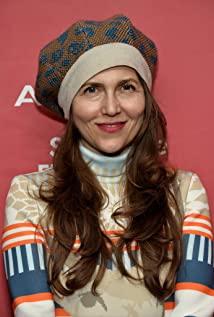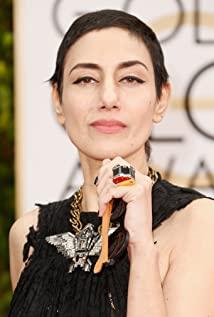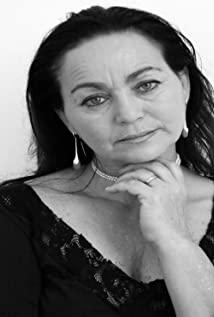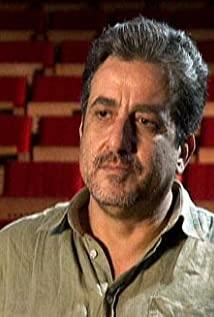The 2014 Israeli film "The Litigation" tells the story of three old judges cutting off family affairs. This film was nominated for last year's Golden Globe Award for Best Foreign Language Film. It was co-directed by Israeli talented woman Ronette Alkabez and her brother, and starred by herself. This is a case of divorce between husbands and wives. The lawsuit lasted for five years, and there were countless courts. In that small court, the two sides quarreled endlessly. They also invited their own lawyers and witnesses. The rationale is still messy. In the divorce petitions that have been filed continuously over the past five years, one of the parties has been imprisoned for refusing to appear in court, while the other party was denied entry to the court for insulting the judge. The two brothers turned against each other due to the case, and the lawyer of one party was almost dragged. Entering this pool of turmoil, the judge in charge fell ill because of anger... The film vividly demonstrated the difficulty of housework and the complexity of marriage.
In fact, the story of the film could not be simpler, that is, the wife sued the court, demanding that she be divorced from her husband, but the husband resolutely disagrees; the scenes of the film are not complicated, almost all of them unfold in a small court. There is no extra room for performance, and the lines are used to promote the storyline; there are not many characters on the stage, and they leave a clear enough impression on the audience, especially a few witnesses, who appear only once, but each character is very brilliant. Their appearance expanded the extension of the story. From their bodies, one could see the situation outside the courtroom.
In general divorce cases, the female side will undoubtedly receive more sympathy from the people. In this play, the audience shows sympathy to the heroine Vivienne from the very beginning. She followed the lawyer to the court time and time again, each time ending in failure. Her husband Elisha had only one sentence, not willing to divorce, and asked her to return home and fulfill his wife's responsibilities. Elisha believed in the court that Vivian was qualified as a wife, she was very responsible for the family, and there was no derailment. In the eyes of outsiders, their husband and wife are harmonious, and even Vivian believes that her husband has never touched her. They have four children, and the husband works hard to raise the whole family.
In the eyes of the judge and many witnesses, Vivienne's request for a divorce was a bit weird. In the eyes of ordinary people, they are considered a qualified couple. After all, both men and women are not too dissatisfied with each other's behavior. In other words, they have basically fulfilled their responsibilities as a husband and wife. In Chinese colloquial terms, it is women who are obedient to women's way, while men do not use prostitution. Therefore, in the judge's heart, naturally he has long since turned his heart toward the party who does not want to divorce. We can clearly feel this point after several times in court.
This protracted divorce battle exhausted both the characters in the film and the audience and felt very tired. The movie is not only to show the behavior of all parties in the marriage, to show it to others, but also to let yourself see what your marriage looks like in the eyes of others. At the same time, the film also looks at marriage from a higher angle and examines the social relationships in marriage.
Therefore, what the movie describes is not a pure divorce, and the intervention of religion makes this case even more complicated. Many viewers were very moved after watching the "Proceedings". They thought that Israel was a fairly enlightened country, but they didn't expect to be so conservative and that religion was so deeply involved in the lives of ordinary people. It is true. Israel is a country without marriage laws. Civil cases involving marriage and divorce are generally judged by a court composed of Jewish rabbis. According to relevant information, there are thirteen types of religious courts in Israel that deal with marriage matters in corresponding denominations. Ordinary courts cannot get involved in marriage disputes, and inter-sect marriages cannot be arbitrated. Moreover, all religions actually regard the marriage of believers as their own responsibility. The marriage etiquette and custom of any culture has a complete religious ritual.
It can be further said that the origin of the law itself is inextricably linked with religion. Francis Fukuyama also said in his "The Origin of Political Order" that the justice and authority of the law comes from religion, from the grant of God, so the law is naturally higher than the royal power. The monarchy is granted by the gods, and the king must abide by the laws set by God. At least in both Christianity and Islam, God or Allah is the final judge of human justice, and the clergy represent God's justice in law enforcement. Judaism, the source of the first two religions, is even more so.
Watching an Israeli film like "The Lawsuit" reminds me of the Iranian films "A Parting" and "The Past" that I have watched in the previous two years. I always feel that although their religions are very different, they are actually dealing with marriage. There are very similarities. This is the reason.
The court Vivienne faces in the movie is such a religious court. In the movie, we can also look at this court. From the occasional shots sweeping outside the courtroom, we can see that there are quite a few couples dealing with marriages in such courtrooms, and many of them are queuing outside, waiting for the call of the religious judge. The court was set up in a small room, with three older rabbis standing tall as judges, while the plaintiff and the defendant seat were lined up next to them, seated the plaintiff and their lawyers. The witness stand is just a small table, located in front of the original dock. There is no auditorium in the courtroom, irrelevant personnel are not allowed to enter the courtroom, and witnesses who have given testimony have to leave the courtroom immediately.
Such a court is actually the same as a modern court in many aspects. The statements of the plaintiff and the defendant, the mutual defense of the lawyers of both sides, the interrogation of witnesses, the judge's intervening from time to time... Watching this play is like watching an American court play. You can appreciate the prosecution and defense, see the layers of the case, and even see the human nature in detail. But in such a religious court, you can see more things, see the complicated culture mixed in marriage, see the profound influence of religion on people’s lives, and even see the history and current situation of the Middle East. .
Marriage has never been simple, it has always been the sum of the most complicated human relationships. In the Middle East, in Israel, marriage is particularly complicated.
In other countries in the world, divorce lawsuits will also be protracted. A divorce case like the one in this film that lasts for five years, although not many, is not uncommon. But under normal circumstances, the entanglement of divorce lawsuits mainly lies in the ownership of children and the division of property, and interests dominate the disputes in marriage. As long as the two parties can clarify their interests, the divorce entanglement can be easily resolved. In the "Litigation", the long delay in the divorce case lies in the divorce itself and does not involve interest. Vivian and her husband Elisha have four children together, all of whom are adults, so the belonging of the children is no longer a problem. Vivienne has her own job and is able to earn money to support herself, and in the litigation, the two parties have not been involved in the division of property. The focus of the problem is that there is a fundamental ambiguity between the two parties as to whether the marriage is happy or not.
In this case, there is actually no wrong party. In general, in divorce cases around the world, the offending party is naturally at a loss, and will lose a considerable say in the divorce process. Neither Vivienne nor Elisha believed that the other party was at fault, nor did they blame each other for this. The man believes that he has provided the necessary responsibilities for the family and is doing his best to make the whole family happy. The woman believes that she did not get the love of the other party during the marriage, and that the other party restricts her freedom. Even if the other party has no domestic violence against her and her life is safe, she feels that such a marriage is not happy. From Vivienne's narrative, we can feel that Elisha is a very stubborn man with a strict sense of religion and cold violence towards Vivienne. Vivienne complained that after so many years of marriage, Elisha had never given her a flower, had not watched a movie with her, and had forbidden her to communicate with any friends.
Vivienne should have been born in a relatively free family. Judging from her profession as a beautician and her dress, she also has a free mind. Naturally, there is a big gap between her husband who adheres to the tradition. In the movie, we can also see that she hired a lawyer who is not strictly religious and often forgets to wear a small round hat, while her husband Elisha’s defender is his brother, a very accomplished Judaism. Rabbi. His appearance made the divorce case, which was originally influenced by religion, more religious. The lineups of the divorced parties are obviously quite opposing. One party tends to be free and secular, and the other party is traditional and religious, which is evenly matched.
However, the balance is obviously biased towards the traditional side, that is, the side of her husband Elisha. As mentioned earlier, this is a Jewish court, and the judges are highly respected rabbis. More importantly, whether the divorce is or not, the most important thing is to get the husband's consent. If the husband does not agree to the divorce, then no matter how the case is judged, the marriage is definitely inseparable. As a result, the lawsuit in the film has actually become a logical vicious circle. The purpose of Vivienne's lawsuit is to divorce her husband; the basis of the court's judgment is that her husband agrees to her divorce request; the purpose of her husband's response is to resolutely disagree with the divorce. Therefore, for such a simple divorce case, the trial was repeated at the first trial, and the trial was delayed and procrastinated.
At this point in the movie, the spearhead is naturally directed at the patriarchy of Israeli society. The director also used the camera to calmly put the question in front of the audience, showing her critical edge. Indeed, the problems shown in the film are also plagued Israeli society, especially its marriage bill is also being criticized. Through this film, the director is responding to the calls of the people in his country to reform religious courts and introduce secular marriages. However, the movie does not stop there. The uniqueness of this film is that the director does not only look down at marriage from a height, to observe the cultural genes and social relations of marriage, but also looks at the details, with more interesting details and more angles. The discussion shows the complexity of this issue. This also gives the film a broader perspective. The film uses a bird's-eye view to construct a logic of marriage, and it uses observation that spurs the inside to deconstruct marriage.
What exactly is the marriage between Vivienne and Elisha? It can be seen from the foregoing that in the eyes of ordinary people, they may not love each other and get along well, but they are still respectful. Like most couples in Israel and the world, they have no greater contradictions and conflicts, and they are still in a sustainable state. . But the director used the camera to defuse the audience's view. When the two met in court, they had looked at each other several times, and the director relentlessly showed their expressions meticulously and tirelessly. The eyes they stared at each other showed their mutual hatred, which was a kind of indifference with hatred. The appearance of their neighbors as witnesses lifted the veil of this seemingly peaceful family. Although the neighbour of the witness invited by the man was constrained by various circumstances, he still praised the couple for their peaceful coexistence. However, under the constant questioning of the opposing lawyer, the quarrel between them was like a common meal.
Regarding Vivienne's virginity as a wife, that is what both the plaintiff and the defendant are trying to defend. They all think that Vivienne abides by women's way, and has not interacted with men even when she was separated from her husband. However, the director used a seemingly inattentive lens to freeze Vivienne's charming dress, especially her feet with red nails, which might imply the intimacy between her and the lawyer. The most explosive testimony came from a witness who seemed to be dim-eyed. He said that he saw Vivienne during the separation, talking secretly with a man in the cafe. As soon as this remark was made, it was like throwing a bomb, which immediately caused a sensation in the courtroom. The husband Elisha first asked the witness not to talk nonsense, and then his wife Vivian firmly denied it, saying that it was a lawyer who was talking to her. But the director calmly turned the camera to the lawyer, showing the lawyer a look of consternation before the audience. The truth about the marriage between Vivienne and Elisha may really only be understood by them. Marriage is like a person drinking water, knowing it is warm or cold. From the court, you can't get any justice, all you get is to hurt yourself again.
In the film, there are many details like this. The director uses the details to construct another frame outside the logical frame of the story. This frame is independent of the frame of the story. These details are fragmentary and not fragmented. It cannot be denied that she uses such a framework to illustrate the complexity of marriage. The former framework is a marriage relationship based on Jewish culture and religion, with distinctive Israeli characteristics. The latter frame is constructed between the couple, and it has universal applicability in the world. Pure marriage does not exist. Marriage is not only based on the love of both parties, but also the various cultural backgrounds of both parties, as well as their respective psychological states at this moment. In order for Vivienne to fight for the freedom of marriage and want to get rid of her unwilling marriage, she has to show everything about herself, including her privacy, in front of everyone, just like in the movie, so that the relevant and irrelevant A group of people, tell me what your marriage looks like in their eyes. And your marriage in the eyes of others may not be consistent with your own views. However, this is also an aspect of the complexity of marriage.
At the end of the film, the audience is actually even more desperate. Vivian finally waited for her husband Elisha's consent, and she could divorce. However, she also had to accept the condition proposed by her husband that she could not associate with other men after the divorce. This has fallen into another vicious circle. She wants to get rid of her marriage and seek freedom in her life; however, as a result of the divorce, she has obtained the freedom of identity, but not the freedom of the person. She doesn't have to make a promise to the marriage, but she has to keep the promise of her ex-husband who has nothing to do with her anymore. In short, she became even more unfree. I am afraid that at this moment, Vivian is already heartbroken. The film also shows this change in detail: Vivienne's dress is no longer fashionable, it has become traditional and conservative.
View more about Gett reviews











